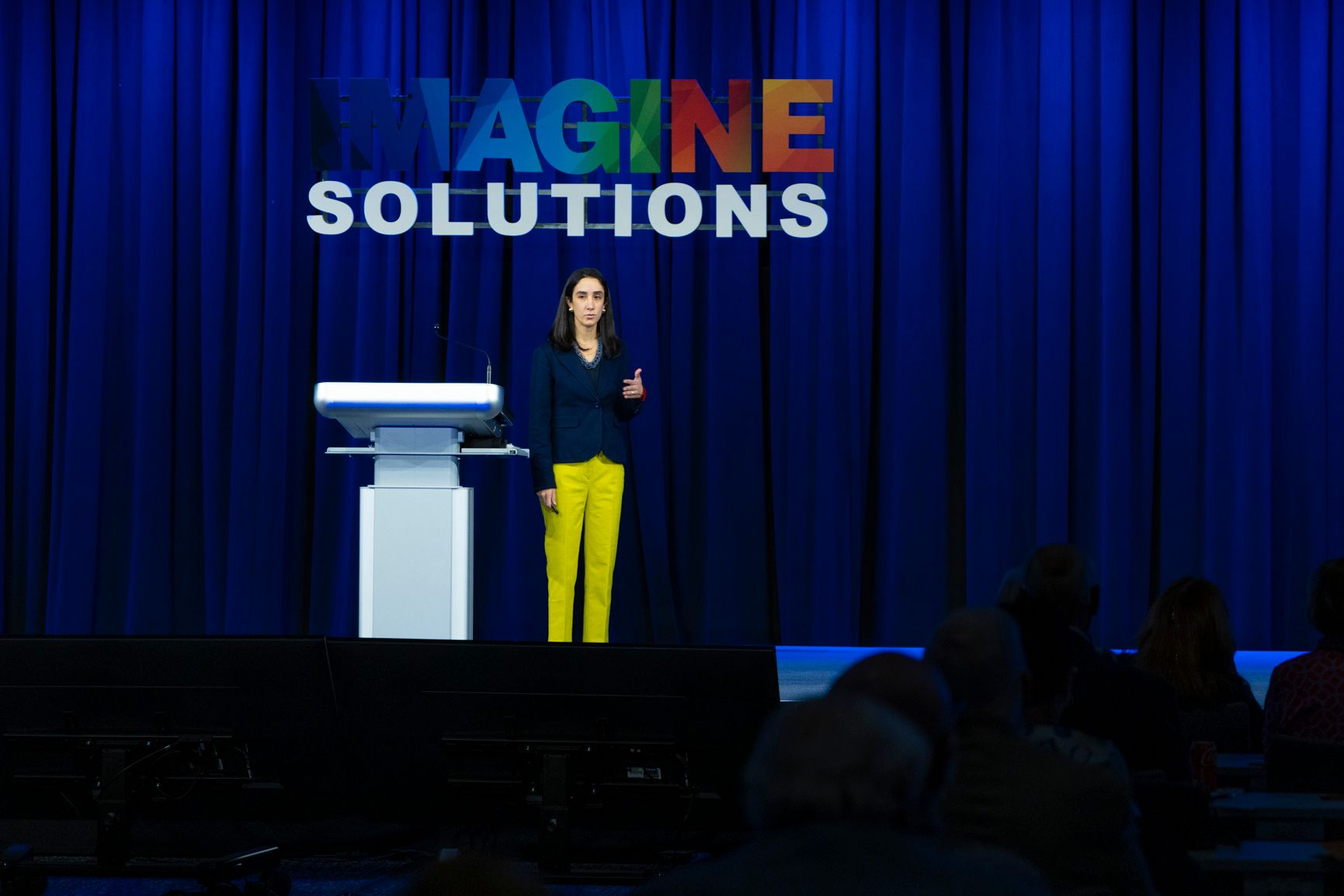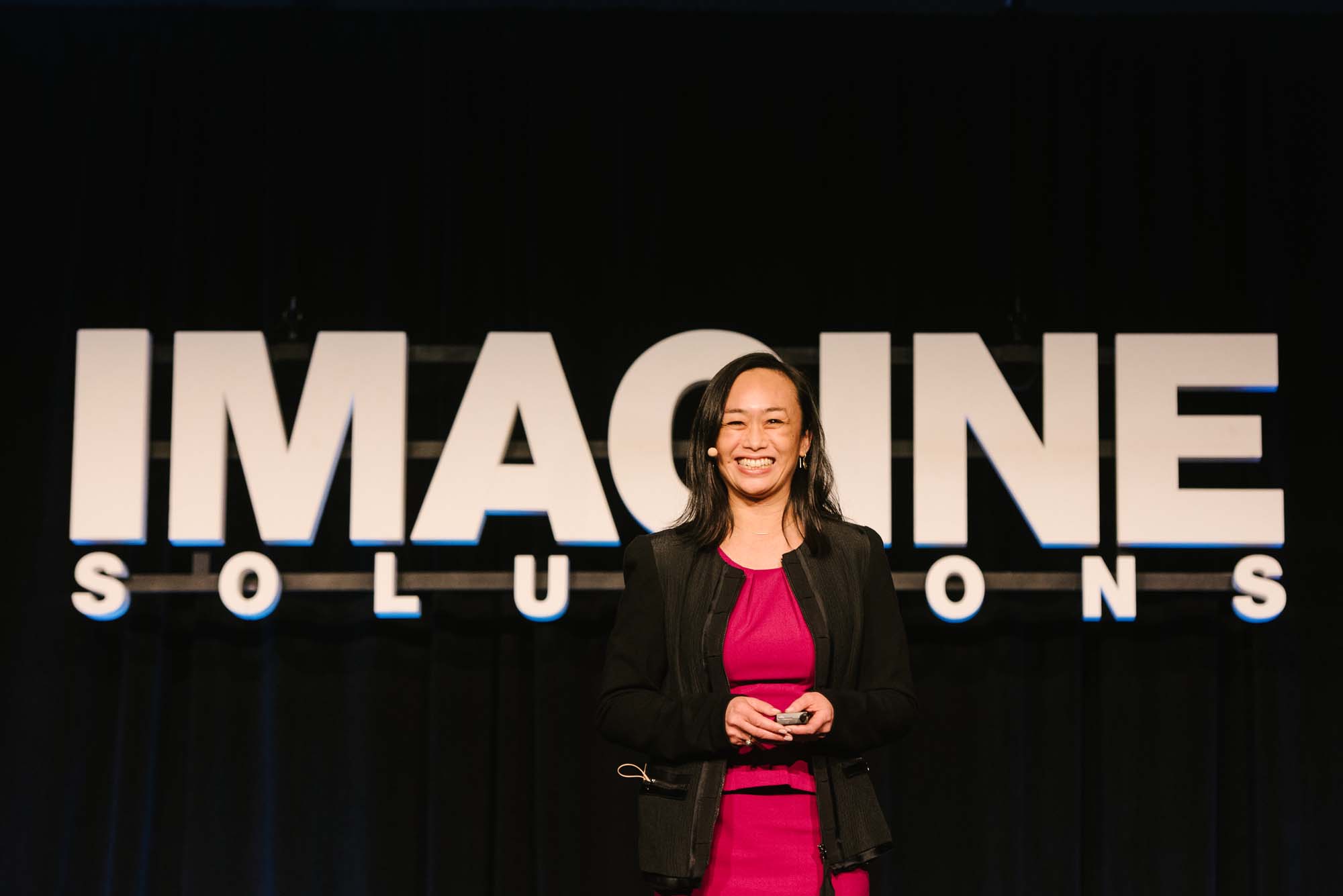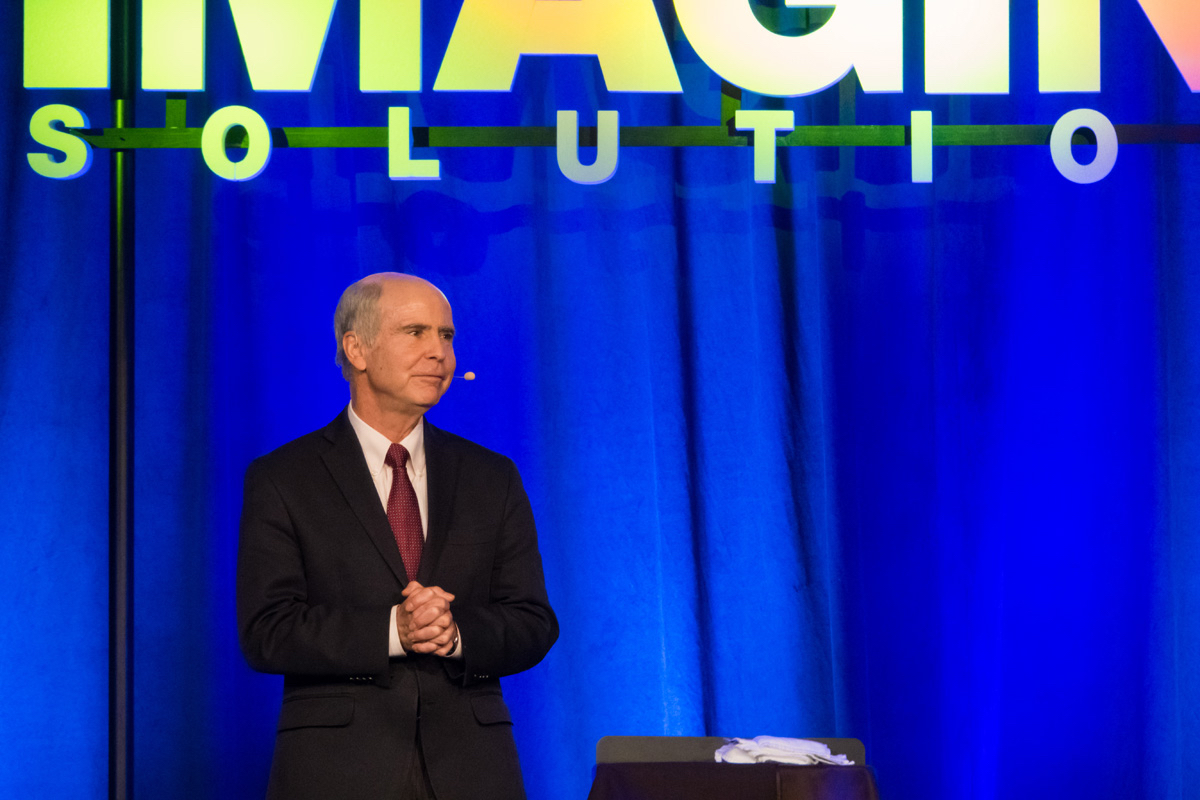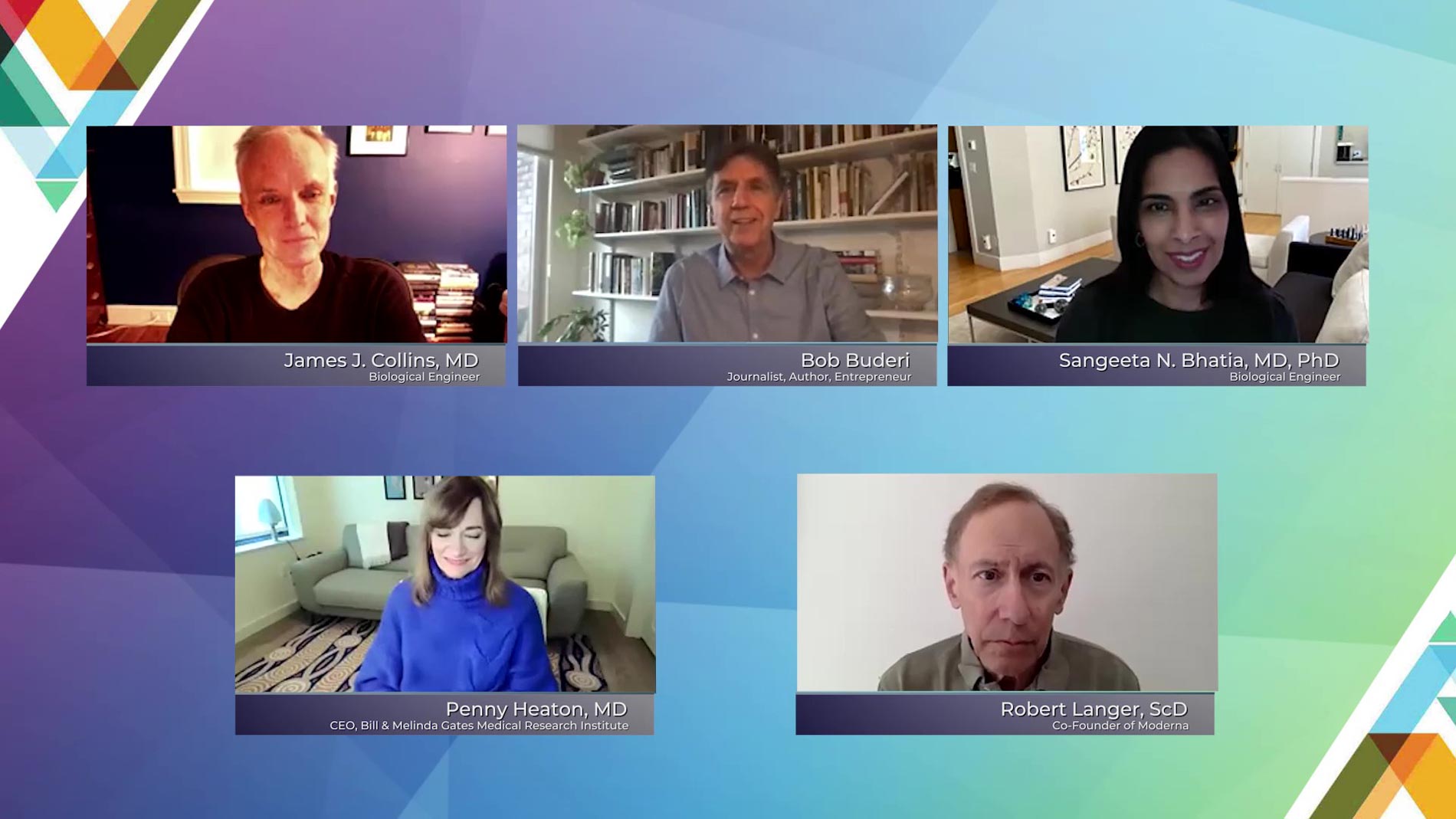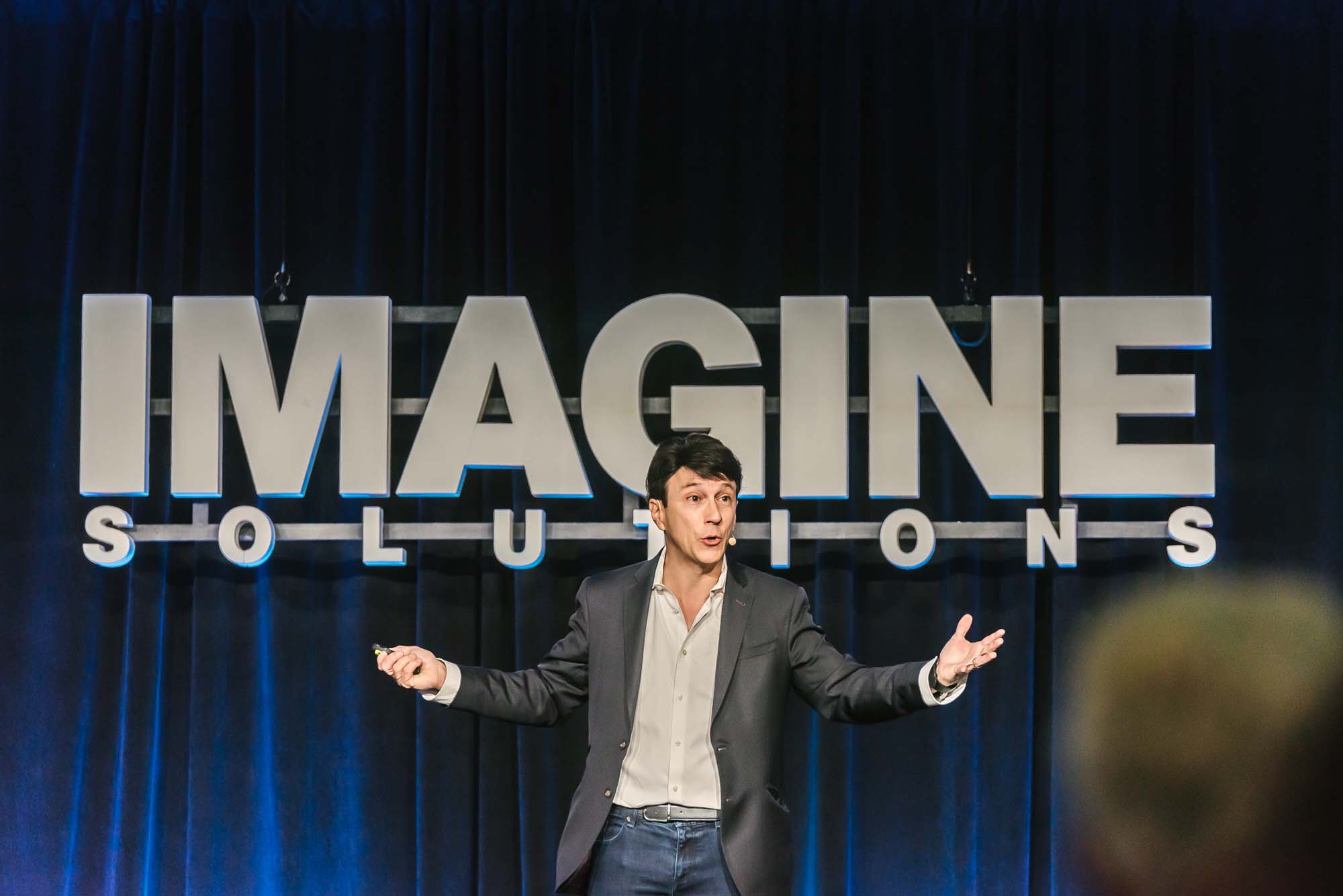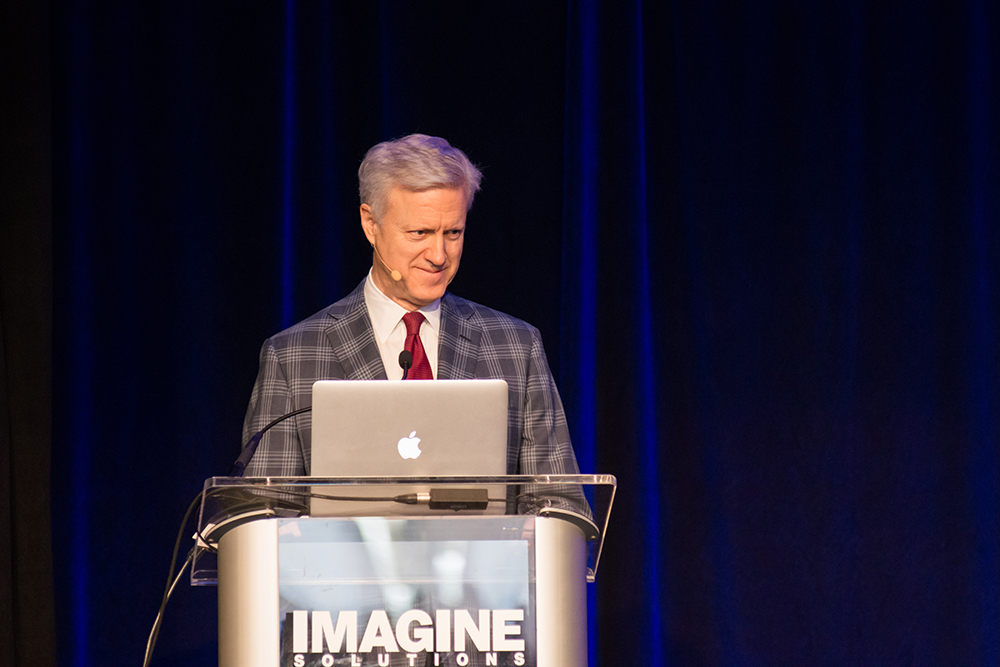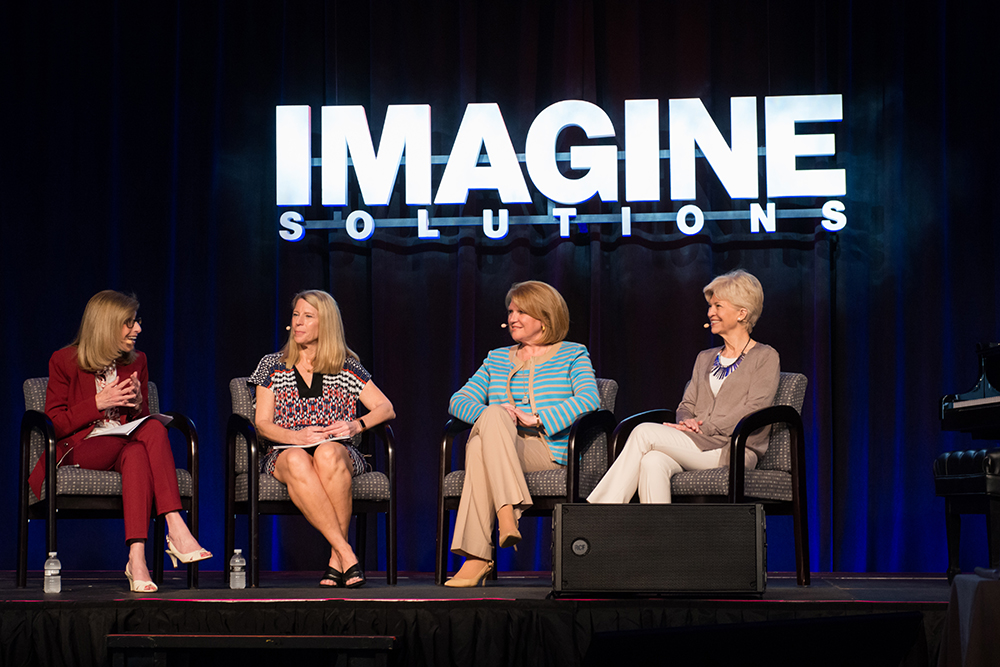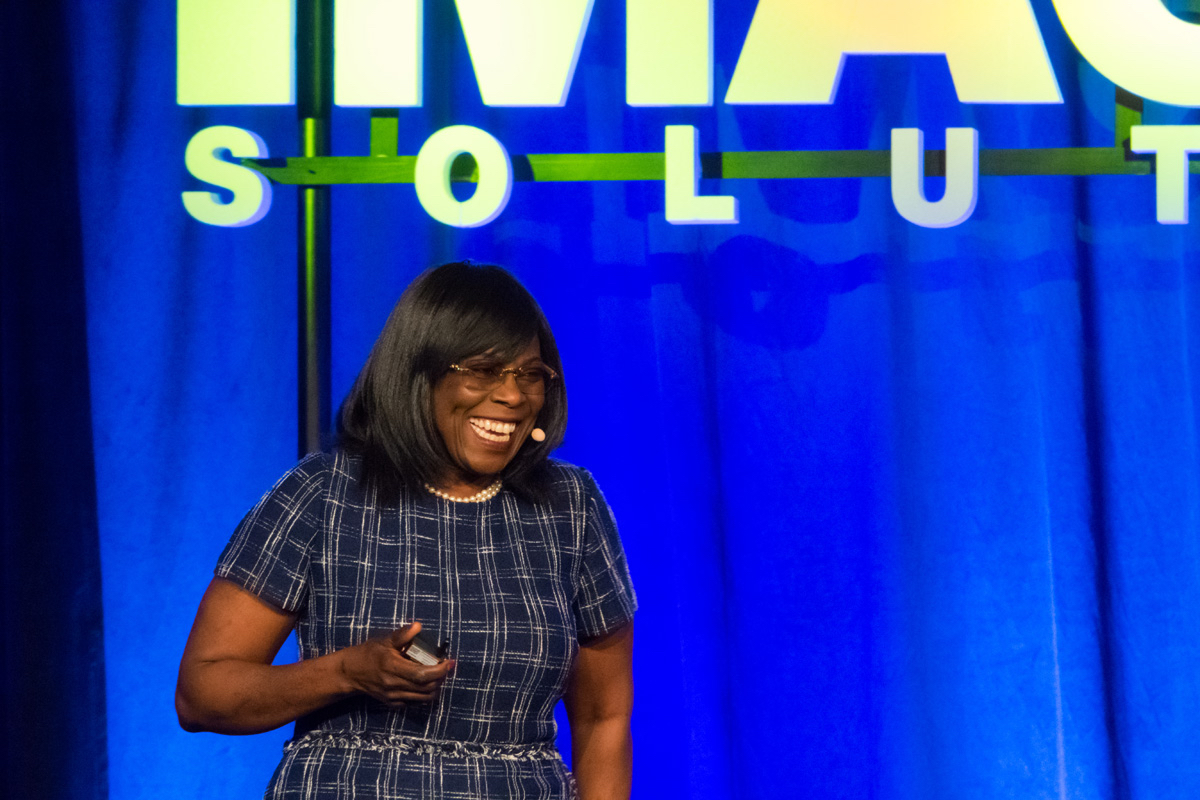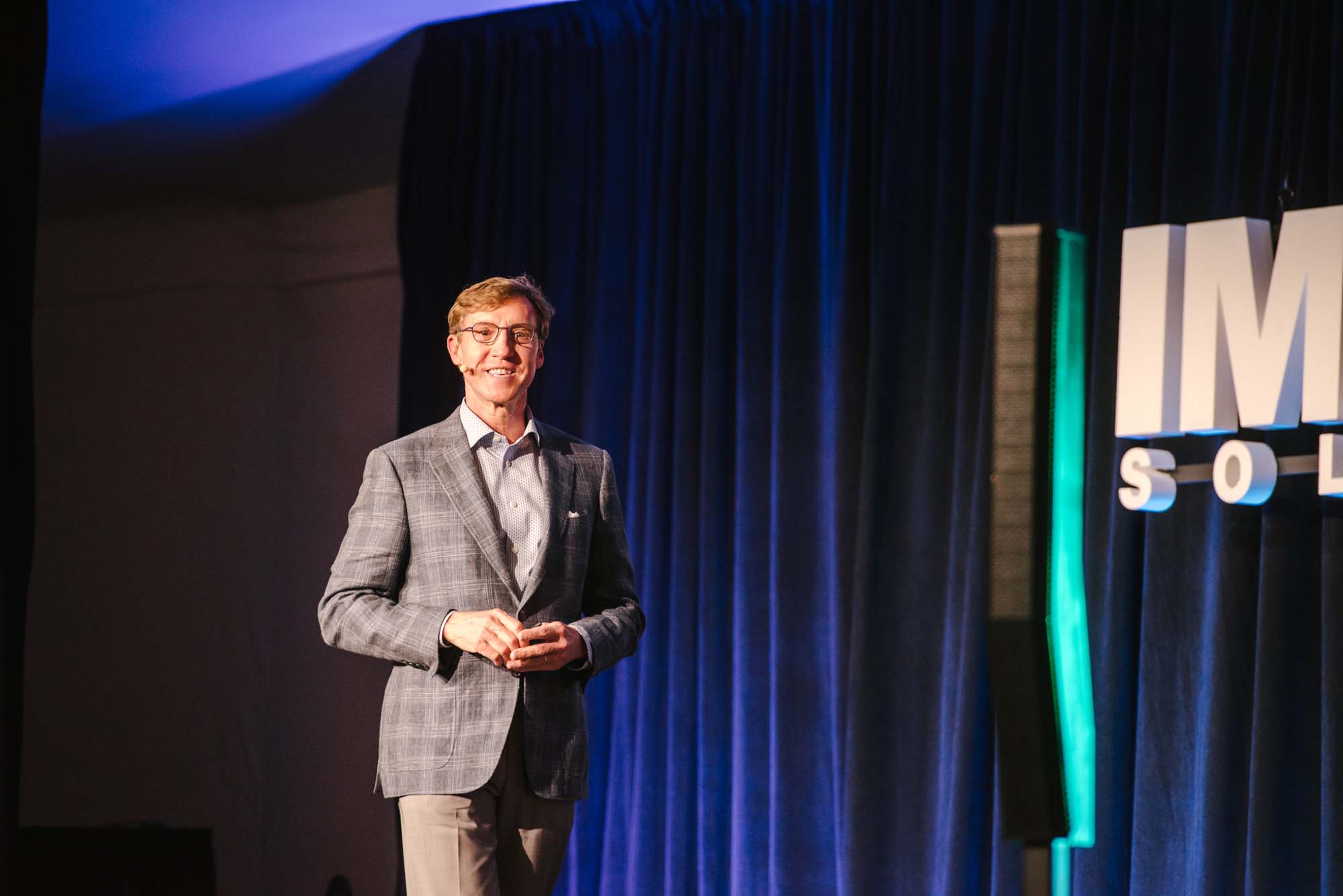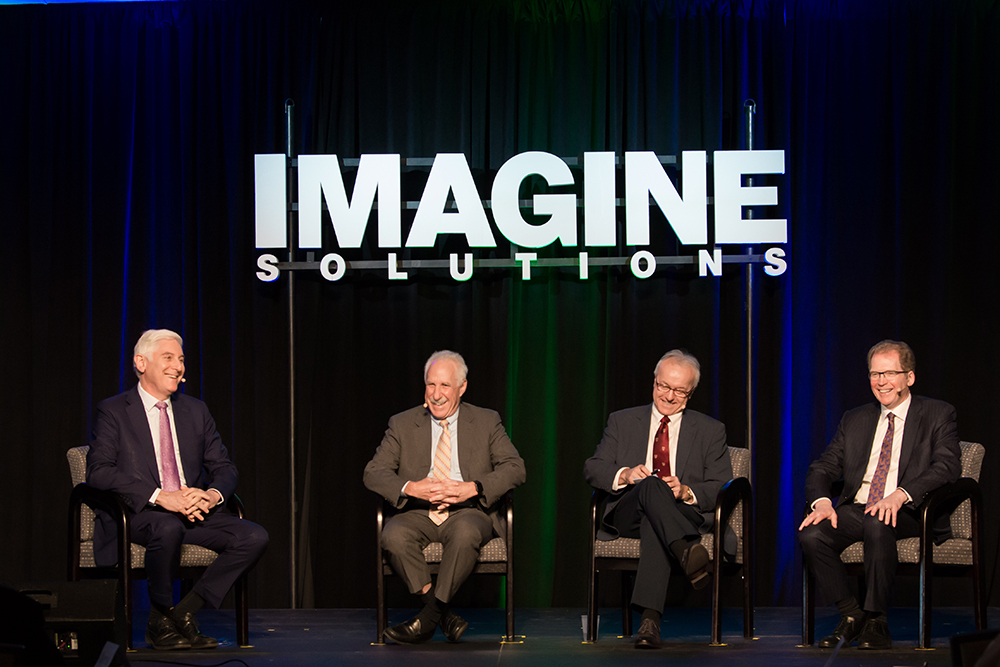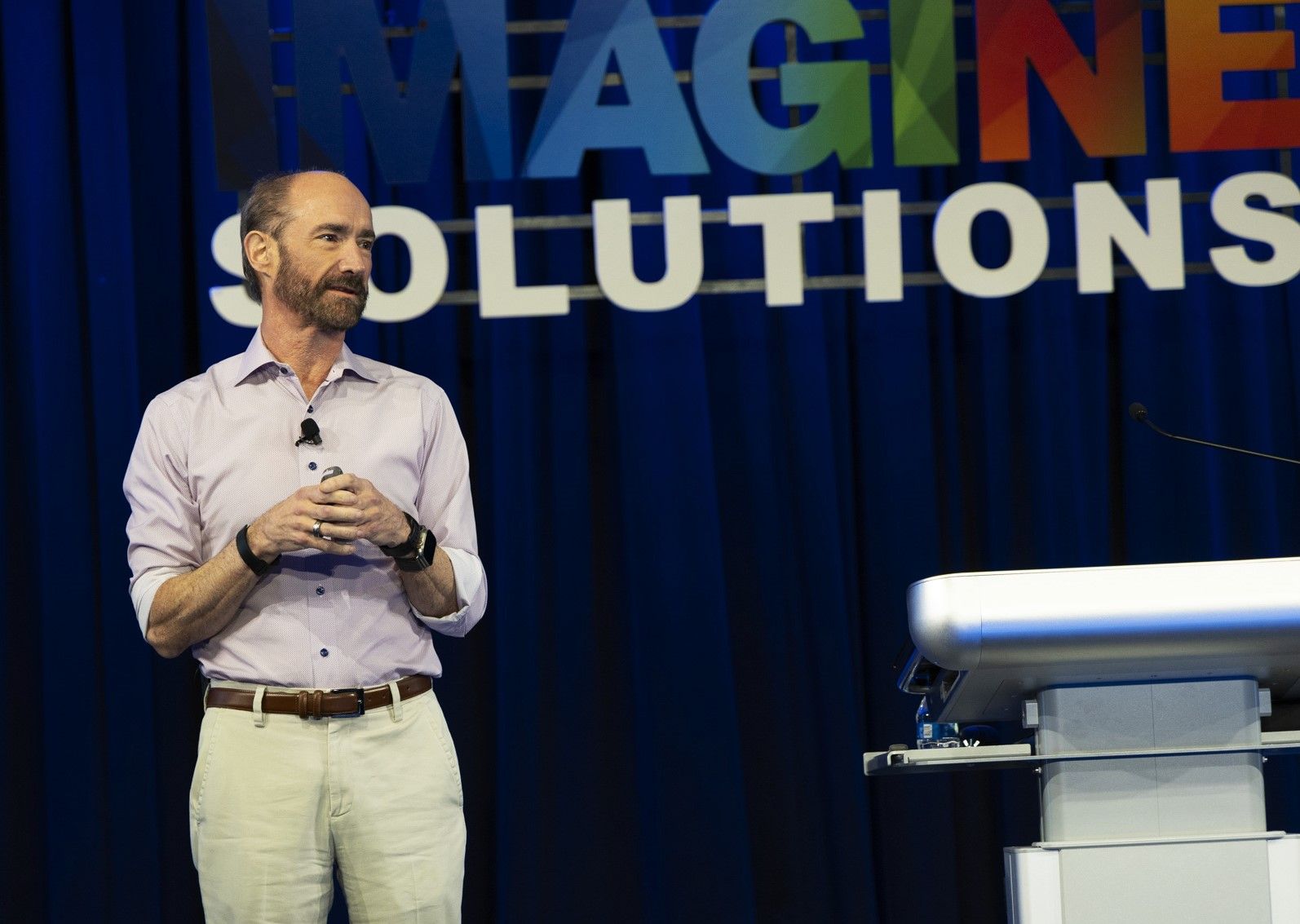Rethinking Alheimer’s – The Breakthroughs!
00.00
[Music] let's keep the thought process going here on technology and science with Fanny alahi she's a physician scientist leads a science lab at the mount si uh Hospital School in New York city that is rethinking Alzheimer's among other things uh earlier diagnosis a huge breakthrough in this uh Scourge and here today to update us on the major science research on Alzheimer's and Dementia please Welcome to our stage Fanny elahi hi everyone it's a pleasure to be here and I think my topic is not the happiest of topics but I'll try to tell you why I'm so excited to be working on Dementia in this decade and why there is great hope hope uh to come um the choice
01.03
of wording ending is on purpose I can say cure dementia that would be very misleading because it would mean that dementia is a disease that we can cure and it's not however how we need to end dementia is by detecting early because there will be a start to the degenerative process of the brain and and the dysfunction of the brain that eventually when gone on untreated undetected will lead one person to lose their functions lose their identity and develop dementia so dementia is a clinical state aen to heart failure from many different causes or metastatic cancer from any kind of source what we need to do to end dementia is to detect
02.00
disease any number of diseases that lead to dementia early while function is unimpaired and to understand what we need to treat we don't need to treat everything but there are ways to understand what we need to go after and then to be able to do this at scale if we all are lucky enough to live long enough we will develop brain degenerative diseases we we can do nothing about brain aging so if people are dying before they develop dementia is because they have died of other causes therefore this is a problem for every single human being living today now when I say change what are we thinking about you know memory impairment inability to perform our daily task inability to speak speak or
03.00
to understand language is how we've come to define various kinds of syndroms or presentations of dementia and yet how brain dysfunction begins is with changes in mood sleep movement our sense of connectedness to one another and and yes cognition but often it's not actually the first changes it's just the first that we know not and in fact maybe we've come to un recognize dementia as Alzheimer's disease because memory impairment is how most people come to the medical attention what my lab is really interested in and how I think we're going to conquer dementia and ended is by detecting molecules associated with brain degeneration and dementia because that we can screen we don't need to wait for function to have declined we can screen Alois Dr Alois
04.00
Alzheimer's of the turn of the 20th century described the very first case of Alzheimer's disease Augustin derer interestingly enough she did not have your typical age Associated Alzheimer's disease or scile dementia she was 51 at that time and she had full-blown dementia so dementia is different than aging the two are separate age is a risk factor for dementia but the two are not the same and in fact although she she she harbored the uh Hallmarks of Alzheimer's disease she had a lot of other pathologies in her brain not just Alzheimer's disease eventually what happens is that the brain degenerates and as the brain brain degenerates symptoms develop we're doing it upside down we start with the symptoms someone comes to my clinic to see me as a patient and they have full blown symptoms that's too late however by studying people who have have been symptomatic and have donated
05.01
the brain to research we know that there are two things that happen no matter how the brain gets there eventually if someone has dementia due to Alzheimer's disease they Harbor two proteins in their brain that have changed aggregated and we can see a death one is amalo plaques we now have Imaging methods for that we have ways to detect that incal spinal fluid and now we can also detect in Blood and I'll tell you more about that later the other and potentially more toxic protein is called tow both of these proteins are expressed in everyone's brain they actually have a function they're quite important but in state of disease they change their structure it's also potentially because our brain is no longer clearing things from the brain so why they accumulate in the brain I think is our clue as to why
06.00
we develop neurodegenerative diseases I consider them just to be biomarkers of Al zous disease they Mark the state of disease they don't tell us why a brain went from being normal to having neurodegenerative disease now we have some treatments against Alzheimer's neuropathology and I'll show you in in a future slide um how they work but really we are detecting disease too late so if we recognize disease when someone has full-blown symptoms and if we only measure these two proteins amalo and Tow we're going for the tip of the iceberg we have lived an entire life we a lot more than just the tip of the iceberg and so the data that we are collecting um globally now in research
07.00
is much more than that you're going to hear from Mike Snyder later today about how the use of wearables can transform many disorders that is coming to neurodegenerative diseases and dementia imagine that you don't need to wait to develop full blown Parkinson's disease but you have a wearable that tells you that you're at higher risk because your movement has changed in a subtle way you may feel it others may not see it yet that's the time where you want to detect abnormality imagine that you wear again a a wearable an an easy device and you know that your sleep is now fragmented and that you need to do something about your sleep and imagine that you give a blood test to measure your cholesterol or glucose levels and check your liver function kidney function and you also get to check your brain health this is the data that is being generated with exponential uh speed in research
08.00
so we've gone from 1 to two to three to thousands of molecules that we're measuring in someone's blood just microliters a tiny amount of blood we can measure thousands of molecules instead of waiting for someone to no longer be able to function in their daily life we are measuring traits abnormalities for that person so change within the person not on a group level or average we then you've heard about a I and you're going to hear more we apply machine learning algorithms we don't look at one hypothesis at a time one molecule one outcome we throw the kitchen syn of data um and we apply Advanced Analytical methods to see where the key abnormalities are doing this we know that there is not one kind of Alzheimer's disease or one kinds of Dementia but I put 30 but potentially hundreds we all degenerate in different ways and the treatments for
09.01
each uh disease or disorder may be different and what's most exciting and this is a big Focus for my lab is that we're seeing connections between the body and the Brain this opens a whole new Avenue for Therapeutics imagine that you don't need to actually deliver treatments of the brain but that you get to treat pathology in the body you've heard about the gut brain access but there's a lot more to that than just gut brain access so over the past decade maybe decades but really technology has advanced to a great extent over the past decade we get to connect the human genome the genes to the exposures that we go through we can record that and I hope that we'll do it more so and at scale and we get to measure molecules in a noninvasive way we don't need to wait for someone to die or to do an invasive lumbar puncture to get cerebral spinal fluid we get to
10.01
collect blood and technology has gone so good that we get to measure thousands of molecules in someone's blood so in a cartoon fashion the rich data that we have gathered over the past several years is showing us there's a lot more connection between diseases that have been siloed with brain degenerative disease including Alzheimer's disease than we thought there were this provides incredible opportunities for drug repurpose anding there have been some trials the problem with those trials is not that the concept is wrong it's that we are not selecting individuals correctly for the trials it's not going to be every single person who has Alzheimer's disease who may have a risk for diabetes or hypertension biology is very diverse again many different roads lead to Alzheimer's disease and we ought to use
11.00
our Precision methods in order to select the right group of individuals to test the right drug and that's coming so not one Alzheimer's disease and in fact not one neurodegenerative disease but many and what they do share is how we've come to Define them this is pretty arbitrary we're saying that ameloid and town need to be in the brain but when we look at the brain of an individual with Alzheimer's disease we see a lot more than that so this is um the big paper from one of the clinical trials going after ameloid you may have heard about the drug lcab there are many more MBS against ameloid that have now are coming to the market and are getting FDA approval so this is one class of drugs that we're going to have at our disposal it is going for the tip of the iceberg but even going for the tip of the iceberg you have an
12.00
effect oh I don't have yeah you have an effect so on the left I'm showing you the biomarker this is measuring amalo in the brain using pet scans and imaging method and showing that people who get drug clear the brain of amalo great the the figure in the middle is showing you clinical Improvement meaning that people who get drug decline less fast by a bit so you get completely rid of the pathology but you hit the clinical symptom just a bit a bit is better than nothing but a bit is not ending dementia so how we imagine the future as a field is that it's going to take many drugs and I would say that if we go early enough it's going to be fewer interventions because disease is less complicated that's just logical so by going for the tip of the iceberg I find that actually quite encouraging I thought that none of these drugs would work because it's really the tip of the iceberg it's a lot that has led a brain to accumulate amid and yet we did have some improvement imagine
13.02
that you can measure many different pathologies with great Precision early enough you can do a lot more than just slow decline by a bit I think you can slow decline to the point that cardiologists need to get on their feet and develop new drugs because the heart is going to fail or other organs are going to fail at this point the brain is failing when someone dies of Dementia by a show of hands if we had a really good blood marker to detect neurodegenerative diseases and Alzheimer's disease who would have their blood who would have that measured fantastic we are worried about this as a field we are slow at bringing these Innovations to the clinic we have a blood test we have a really fantastic blood test what we keep on worrying about and by we not me but our field keeps on worrying about is giving
14.01
someone a really heavy diagnosis with which they can't do anything about and I think that the drug that I just showed you is not gamechanging but it's giving us hope we know that if we detect disease at a symptomatic time point we can do something about it imagine that we detect disease at an asymptomatic time Point meaning that your function is completely preserve your normal but on the blood test you are at risk of developing Alzheimer's disease in the future or neurodegenerative diseases of other kind it's really wonderful to see that you would do that blood test because that's a way to go you have a chance at that point to modify your life in ways that you could potentially mitigate this risk this is what we've done for heart disease this is what we're doing for cancer you detect cancer in sichu it's abnormal cells only in one region of the brain and you can do something about that you don't wait until cancer is metastatic before you go after it this is going to be absolutely
15.01
gamechanging and it's very simple we just need a technology to be able to measure these molecules with great Precision in blood now how we're going to use it I don't think is going to be as gamechanging but it's coming here I'm showing you the red the the yellow and the blue and we're basically dividing people up and we're saying if you're in the Red Zone you definitely have or most definitely have Alzheimer's disease pathology if you're in the yellow zone we really don't know you could or you could not and if you're in the Blue Zone you can breathe easier you don't have it but this is wrong we're bucketing people we shouldn't be bucketing something that we all will develop if we live long enough it's not about putting people in buckets and potentially having some sort of stigma associated with those buckets it's a Continuum how we should be using these blood tests is that we all get it as part of an annual by anual same level as
16.02
measuring your cholesterol or glucose or other organ function and then looking to see where you're trending are you going in the right direction are you staying steady cold or are you improving those levels this is how we should be using these blood tests because this is really what they represent they're actually very very Dynamic so I think very very exciting to have these blood tests and to be able to screen but what I'm most excited about and what my lb is doing is alongside these two three four markers of brain health or degeneration we measure thousands of proteins in someone's blood and tiny amounts of blood are needed in order to do that what that shows us are perturbations in someone's physiology and biology and what we do because not every perturbation is
17.01
pathologic or abnormal we then look at that person's function and we do that not by quantifying memory impairment or cognitive decline or inability to perform tasks of daily living but we measure things like processing speed processing speed declines with aging we measure someone's speed of gate we measure the quality of their sleep we are really interested in functions that alter with with aging and that may alter more so when someone develops a neurod Deena of disease but still early before irreparable damage has been done when we do that we uncover biology when we uncover biology we want to understand mechanism how we get a mechanism is not by turning to Mouse models or other kinds of animal models they're useful once you need once you have a drug and you want to show that they're not toxic but they don't represent humans and they definitely don't represent the complicated functions that get altered with neurod generative disease so what we do is we
18.00
derive stem cells from blood donations and we develop you heard about organoids earlier on we develop cells primary cells of human brain we are really interested in vasculature but we can also do this for brain uh tissue and then we screen drug against that this is how we conquered some cancers and this is how we're going to conquer some of the neurogenerative disorders here I'm showing you a plot where we just measure proteins 80 prot prots in people's blood and we get to put them in biological categories apo4 is one of the most prevalent risk factors for Alzheimer's disease and here I'm showing you individuals with Alzheimer's disease carrying apoe4 no Alzheimer's disease carrying a apoe4 and the control groups all cluster in different groups no age no sex no demographic no cognitive function was entered into the machine learning algorithm in this case only protein level so 80 proteins and blood get to separate people what this tells us is
19.01
that there's a signature in people's blood that we can go after and that is related to biology what I am obsessed with is not the brain tissue is the blood vessels of the brain we're born with our neurons and they are with us all our life they're minding their own business and they're functioning what gets exposed to our environment and changes all the time on a daily basis is blood that's the content of of your lived experiences and that's what the brain sees however the brain is protected from the environment through a barrier called the blood brain barrier this changes with age and we think that this is a key component to all neurod generative diseases and what we want to do is understand what are the changes that put the brain at risk of degeneration and go after those with Therapeutics the advantage of going for the barriers of the brain is also the lack of trouble for delivering the
20.02
drug to the brain we just need to put it in the bloodstream and it'll go where it needs to go ultimately everything that my lab is doing at this point is to develop methods to detect early and reduce the possibilities of pathology down to what is most therapeutically relevant and treatable for a given individual it's not going to be a one-sized fits all and we want to be able to detect with great Precision what we need to treat in whom this is what we want all roads are leading to dementia and neurodegenerative diseases and we want to be able to tell someone that your cholesterol level needs to be here this is what the blood pressure is it's not 120 systolic for everyone for you it needs to be 10 or 100 systolic and you need to sleep these many hours you need to do do this you need to eat this this
21.00
is within the realm of possibility it's just that we have gone for group level Therapeutics it's good it's a good start but we now have techniques and tools to be more precise and this is the dream pathway you have early detection of clinical abnormalities you subtype the disease using biomarkers you intervene you normalize symptoms or you go even earlier you look at someone's genome you know their environment you you use biomarkers to detect risk you intervene you normalize the biomarkers function has not even altered I think we need a complete paradigm shift if that's what we're going to do because people are going to say they're ethical barriers you can't diagnose someone who's totally normal with a disease and I would say that you can if you have the biological markers of disease and that's exactly when we need to diagnose disease and ultimately in my clinic this is what I want to do when someone walks in and says I can't do this or that or I
22.01
feel funny before anyone else is realizing that there's something off I want to have a whole panel of biomarkers that I can run and tell them that the blood vessels in your brain are dysfunctional in this way in that way or that they're not they're okay and the abnormalities are a different kind and have the choice of treatment for that individuals we're not actually far off um growth of our knowledge has really been exponential and this is going to be the future so we've had a very productive decade we are going from one or two molecules to thousands of molecules that we can measure we're going for traits for abnormalities that are well before someone's function can Decline and we can do this with unprecedented Precision in research we have not brought it to clinic but I think it's time to start pushing the boundaries and bring the technology that we have at our disposal and research to to Clinic all of this is going to
23.00
develop lead to new developments in Therapeutics and this is what's going to be really gamechanging what we need to do is tailor treatments and the earlier you go the more tailor the treatment can be and the less toxic the treatment can be what we want to do is establish balance what I haven't told you about is the incredible resilience of the brain um the fact that we all die with amount of pathology and not everyone actually has symptoms that's because our brain is really resilient our brain is key to many of our human functions and so the biology of resilience has really been selected for thank you for your [Applause] [Music] attention

